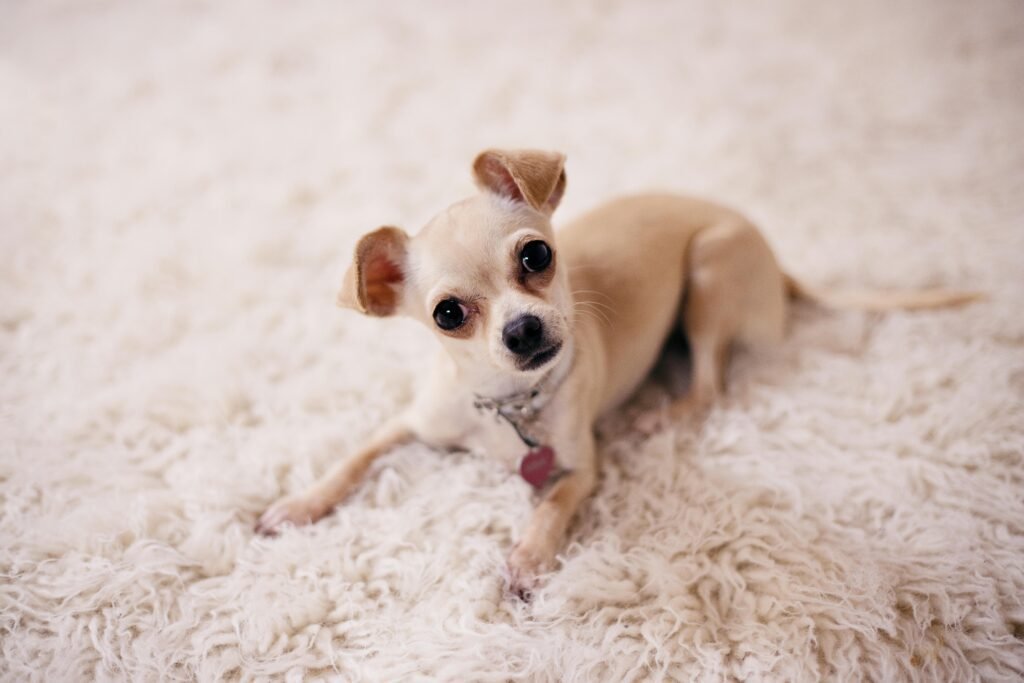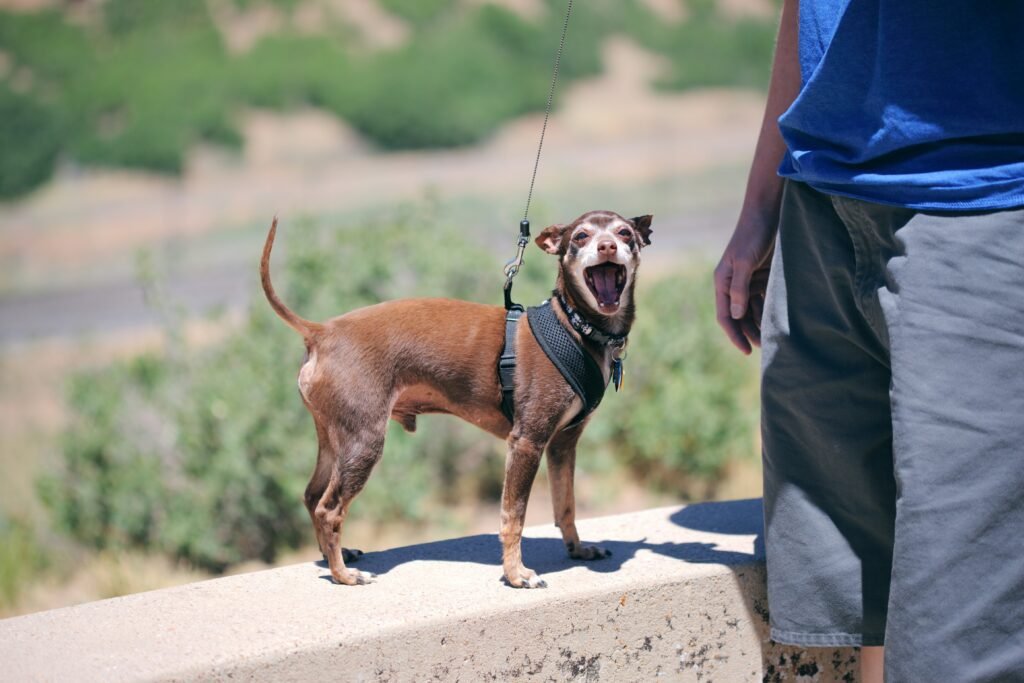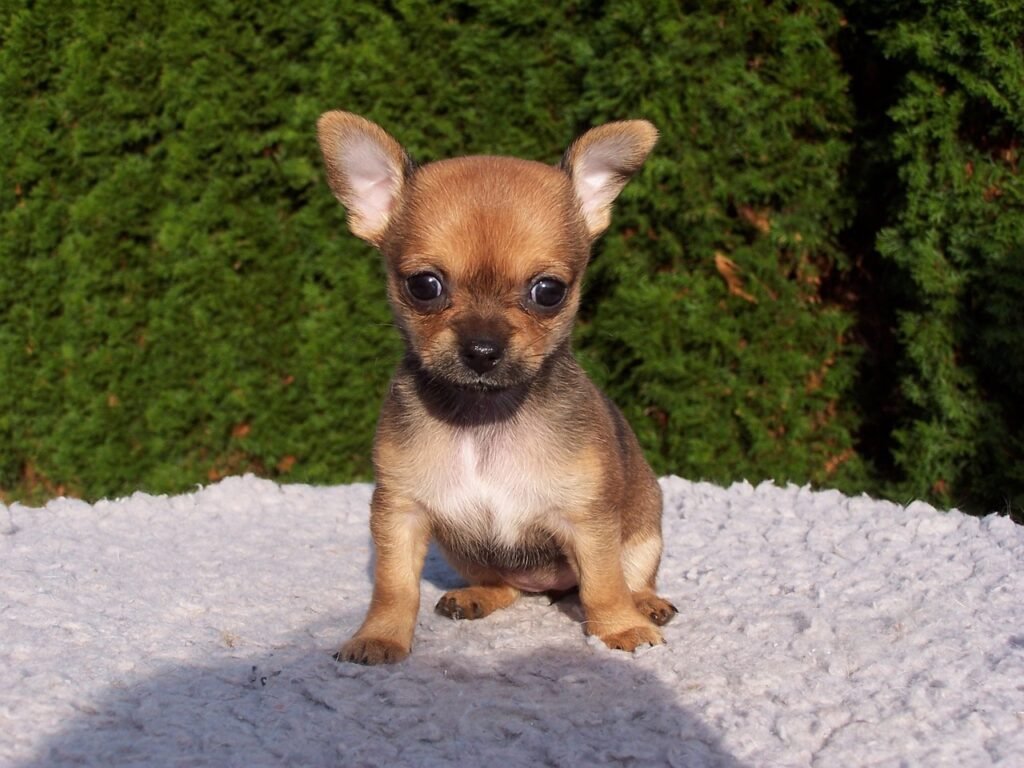Why Are Chihuahuas So Clingy? Unveiling the Mystery
Chihuahuas are known for their intense loyalty and attachment to their owners. If you have a Chihuahua, you might have noticed that they are particularly clingy. But why is that? Let’s delve into the reasons behind this behavior and what it means for you and your furry friend.
What Does Clinginess Mean?
Clinginess in dogs refers to a behavior where they seek constant physical closeness and attention from their owners.
This can include following their owner around the house, needing to be in the same room, and showing distress when separated. Clingy dogs often demand frequent affection and reassurance, and they may have difficulty being independent.
While this behavior is common in companion breeds like Chihuahuas, it can sometimes indicate underlying issues such as anxiety, boredom, or a lack of socialization.
Understanding clinginess helps in addressing the dog’s needs and promoting a healthier, more balanced relationship.

Clinginess vs Separation Anxiety in Chihuahuas
Clinginess and separation anxiety in Chihuahuas, though similar, are distinct behaviors. Clinginess involves a dog seeking constant companionship and preferring to stay close to their owner, showing mild distress when apart but generally coping well.
In contrast, separation anxiety is a more severe condition where a Chihuahua exhibits panic and destructive behaviors when left alone, such as excessive barking, chewing, or house soiling.
While clinginess is a personality trait, separation anxiety indicates a deeper emotional distress requiring intervention. Understanding the difference is crucial for providing the appropriate support and care for your Chihuahua.
Do Chihuahuas Cling to a Single Person?
Yes, Chihuahuas often cling to a single person. This breed is known for forming strong, exclusive bonds with one individual, which can result in them being particularly loyal and attached to that person.
This behavior stems from their origins as companion dogs, bred for close relationships with humans.
While they can be friendly and affectionate with other family members, they tend to show a preference for their chosen person, often following them around and seeking their attention more than anyone else’s.
This single-person attachment is a common trait in Chihuahuas, contributing to their reputation as “one-person dogs.”
Why Are Chihuahuas So Clingy ?
Chihuahuas are clingy due to their origins as companion dogs, bred to be close to humans. Their small size makes them feel more secure when near their owners, often seeking warmth and protection.
Additionally, they have a natural watchdog instinct, staying close to monitor their surroundings. Emotional factors like past trauma, lack of socialization, or stress can also contribute to their clinginess. Overall, their intense loyalty and desire for companionship drive this behavior.

Companion Dog Origins
Chihuahuas were bred to be companion dogs. Their primary purpose is to provide companionship to humans, making them naturally inclined to be close to their owners.
Lapdog Behavior
Chihuahuas are classic lap dogs. They love to sit on their owner’s lap, soak in the warmth, and enjoy the security and comfort that comes from being close to their human.
Watchdog Instinct
Despite their small size, Chihuahuas have a strong watchdog instinct. They are very alert and can be protective of their owners, often sticking close to keep an eye on potential threats.
Boredom
A bored Chihuahua can become clingy as they seek entertainment and stimulation. Without sufficient mental and physical activities, they may turn to their owners for constant engagement.
Heat Cycle
Female Chihuahuas may become more clingy during their heat cycle. Hormonal changes can make them seek additional comfort and reassurance from their owners.
Injury or Illness
If a Chihuahua is feeling unwell or is injured, they may become more dependent on their owner for comfort and support. Clinginess in this context can be a sign that something is physically wrong.
Lack of Socialization
Chihuahuas that have not been properly socialized may become overly attached to their owners. Socialization helps them feel more secure and confident, reducing the need to cling to their owner for safety.
Emotional Trauma
Past experiences and emotional trauma can also lead to clinginess. Chihuahuas that have faced neglect or abuse may develop an intense attachment to a new, caring owner as a coping mechanism.
Old Age
As Chihuahuas age, they may become more dependent on their owners. Older dogs often experience diminished senses and mobility, making them seek comfort and assistance more frequently.
Young Age
Puppies naturally tend to be more dependent on their owners. Young Chihuahuas may be especially clingy as they navigate their new environment and learn to feel secure.
Stress
Stressful situations, such as moving to a new home or the introduction of a new pet, can cause Chihuahuas to seek reassurance from their owners, resulting in clingy behavior.
Rewards
If you inadvertently reward clingy behavior with treats, attention, or cuddles, your Chihuahua will continue to exhibit this behavior. They quickly learn that sticking close to you results in positive outcomes.
Curiosity
Chihuahuas are naturally curious and may follow you around simply to see what you’re up to. Their inquisitive nature can make them appear clingy.
Other Clingy Breeds
Chihuahuas aren’t the only dogs known for their clingy nature. Other breeds that often display similar behaviors include:
- Pugs
- Maltese
- Cavalier King Charles Spaniels
- Shih Tzus
- Italian Greyhounds
Is Clinginess a Problem?
Clinginess isn’t inherently problematic unless it leads to separation anxiety or disrupts daily life. If your Chihuahua’s clinginess becomes excessive, it might be worth exploring the underlying causes or seeking advice from a vet or pet behaviorist.
How to Make Your Chihuahua Less Clingy

Provide Mental Stimulation: Engage your Chihuahua with toys, puzzles, and games to keep them occupied.
Increase Physical Activity: Regular walks and playtime can help burn off excess energy and reduce clinginess.
Socialize Your Dog: Introduce your Chihuahua to new people and environments to build their confidence.
Create a Safe Space: Ensure your Chihuahua has a comfortable and secure place to retreat to when needed.
Avoid Reinforcing Clingy Behavior: Reward independent behavior with praise and treats.
FAQs: Chihuahua
Why does my Chihuahua follow me everywhere?
Your Chihuahua may follow you due to their loyal nature, seeking companionship, or looking for reassurance. They might also be curious about your activities.
Can clinginess in Chihuahuas be reduced?
Yes, with proper training, mental stimulation, and socialization, you can reduce excessive clinginess in Chihuahuas.
Are male Chihuahuas more clingy than females?
Clinginess can vary between individual dogs rather than gender. Both male and female Chihuahuas can be equally clingy.
How do I know if my Chihuahua has separation anxiety?
Signs of separation anxiety include excessive barking, destructive behavior, and house soiling when left alone. Consult a vet or behaviorist for a proper diagnosis.
Is it normal for Chihuahuas to be so attached?
Yes, Chihuahuas are naturally affectionate and tend to form strong bonds with their owners. Their attachment is a typical trait of the breed.
Conclusion
Chihuahuas are naturally affectionate and loyal dogs that often exhibit clingy behavior. Understanding the reasons behind their attachment can help you provide the best care for your furry friend.
Whether it’s due to their companion dog origins, boredom, or emotional needs, there are ways to manage and balance their clinginess, ensuring a happy and healthy relationship.





